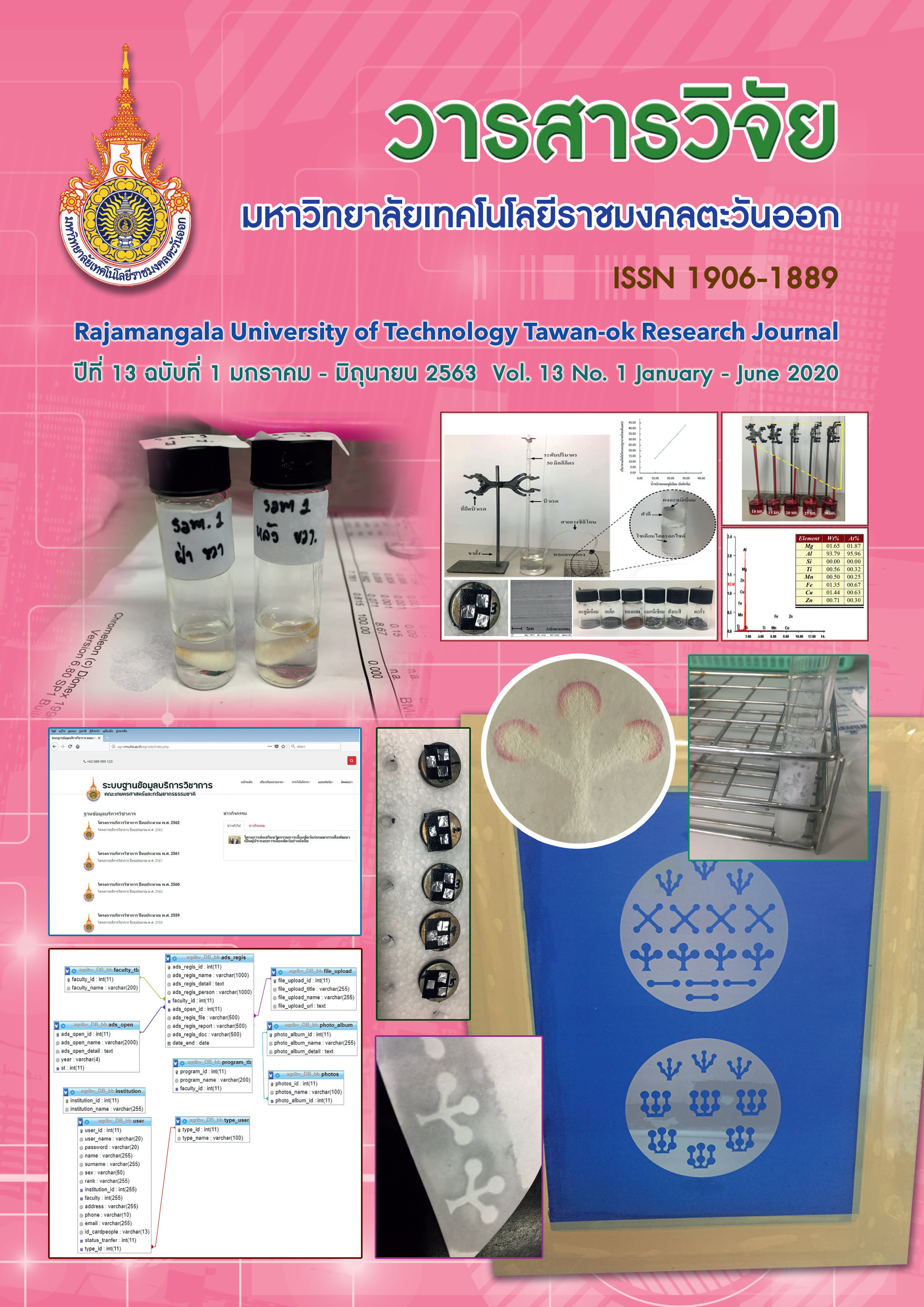Effects of Washing and Heating Conditions on Gel Properties of Hybrid Catf ish (Clarias macrocephalus x C. gariepinus)
Main Article Content
Abstract
Gel properties of hybrid catfish (Clarias macrocephalus x C. gariepinus) were studied at washing conditions: 1) unwashed (UW) mince and 2) washed (W) mince and heating conditions: 1) one-step heating (1-H) at the range from 30 to 90 oC at 10 oC intervals for 20 min and 2) two-step heating (2-H) at 30 to 80 oC for 20 min and further heating at 90 oC for 20 min. The result showed that W-gels at 2-H had lower breaking force, breaking distance and gel strength but exhibited the higher hardness, water holding capacity and whiteness than those of UW-gels. Two-step heating of UW-gels at 50/90-60/90 oC caused the highest gel strength (P 0.05) and the UW-gel degradation was observed at 70/90 oC. Thus, washing step of mince affected the decrease of compactness of protein gel network but could increase the hardness, water holding capacity and whiteness of hybrid catfish gel. Heating at 2-H could improve the gel properties more than that of 1-H.
Article Details
References
Cao, M.-J., Jiang, X.-J., Zhong, H.-C., Zhang, Z.-J. and W.-J. Su. 2006. Degradation of myofibrillar proteins by a myofibril-bound serine proteinase in the skeletal muscle of crucian carp (Carasius auratus). Food Chem. 94: 7-13.
Chaijan, M., Panpipat, W. and S. Benjakul. 2010. Physicochemical properties and gel-forming ability of surimi from three species of mackerel caught in Southern Thailand. Food Chem. 121: 85-92.
Chomnawang, C., Nantachai, K., Yongsawatdigul, J. and S. Thawornchinsombut. 2008. Hybrid catfish gel formation and its textural properties. RMUTI Journal. 1(1): 6-26.
Laemmli, U.K. 1970. Cleavage of structural proteins during the assembly of head of bacteriophage T4. Nature. 227: 680-685.
Lanier, T.C. 1992. Measurement of surimi composition and functional properties, pp. 123 - 163. In T.C. Lanier and C.M. Lee, eds. Surimi Technology. Marcel Dekker, Inc., New York.
Lee, C.M. and K.H. Chung. 1989. Analysis of surimi gel properties by compression and penetration test. J. Texture Studies. 20: 363-377.9(2): 1-12.
Martín-Sánchez, A.M., Navarro, C., Pérez-Álvarez, J.A. and V. Kuri. 2009. Alternative for efficient and sustainable production of surimi: A review. Compr. Rev. Food Sci. F. 8: 359-374.
MFRD (Marine Fisheries Research Department). 1987. Laboratory Manual on Analytical Methods and Procedures for Fish and Fish Products. SEAFDEC, Singapore.


